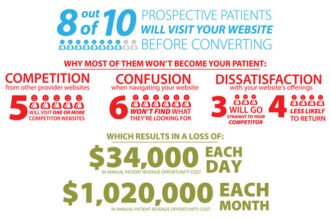

The pressure on physicians to provide better care at lower costs is coming from all directions – top down from policymakers who want more accountability in how healthcare resources are being used and bottom up from patients who want more transparency in how their money is being spent. Obstetrician and gynecologists have not been spared any scrutiny. As primary care providers for many women we are in thick of the debate on appropriate use of pap and mammography screening. As surgeons we also find ourselves increasingly answering for the expense and morbidity of unacceptably high c-section rates.
While our clinical breadth provides ample fodder for scrutiny, it also may uniquely position us to help patients choose wisely among the growing panoply of diagnostic and therapeutic options. One of the most commonly encountered and difficult decisions that patients encounter is, “should I pursue medical management or surgery?” Like other specialties, ob/gyn’s are seeing surgical indications shrink as medical therapies become increasingly available and effective. Unlike other specialties, we often continue managing the patient’s condition whether she chooses surgery or not.
In a brave new world of increased healthcare scrutiny, the value of each option is only clear in comparison to the alternatives. Generally speaking, a trial of medical management is almost always preferable to surgery, even when the medicine is expensive. Take tranexemic acid (commonly marketed as Lysteda in the United States), recently approved by the FDA to treat menorrhagia: the retail price is generally more than $170 per month. However, for the correctly selected patient for whom there are limited safe medical alternatives, it is well worth trialing over the potential pain, inconvenience and several thousand-dollar price tag of surgery. Leuprolide acetate (Lupron), most often used for endometriosis-related pelvic pain, is another example of a very expensive medication (close to $1000 for a three month dose) that could be a good value for the correctly selected patient who does not want to commit to an operation.
Opportunities to help our patients get a good value extend beyond those who wish to avoid surgery. The most common group of medications prescribed by ob/gyn’s are oral contraceptive pills (OCPs), given for a variety of non-contraceptive indications ranging from endometriosis to irregular menstrual cycles. Although there are hundreds of readily available OCP formulations, most of us generally prescribe a small subset that we are most familiar with and consider a limited set of clinical factors. It appears that making cost one of those factors would be particularly worthwhile. Prices of OCPs vary by an order of magnitude. Many available generic options cost less than $10 per month while the newest brand formulations can cost closer to $100.
Despite routine opportunities to help patients make high value decisions, this is often easier done in theory than practice. Patients may present for care with fixed expectations and taking the time to counsel them about the full range of available options is already challenging. Adding cost information to this task creates an extra dimension of complexity. Moreover, cost and value are not always easily ascertained and will typically vary according the patient’s clinical circumstances, personal preferences, and particular insurance plan.
Fortunately, there is a growing body of resources available to help. Medication costs can now be queried online by pharmacy at sites like GoodRx.com. Professional societies, including the American Congress of Obstetrics & Gynecology, are developing lists of high yield opportunities to improve value. Organizations such as the American College of Physicians and Costs of Care provide online training opportunities in cost-conscious care. Choosing wisely and delivering value in obstetrics and gynecology is not always easy or straightforward but I truly believe that we are up to the task.
image: drugcosts/shutterstock








